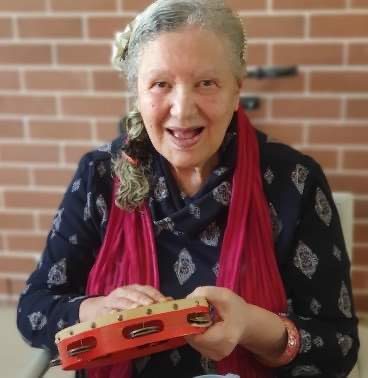Benefits of Music for the Elderly
Maria von Trapp, the famous singer and stepmother of the Trapp Family Singers once said ‘Music acts like a magic key, to which the most tightly closed hearts open.’
From prehistoric times to the present day, music has been a part of the fabric of society. It has been included in many social and religious events for either pleasure, exercise, relaxation or fun. There is something about music that has the ability to touch a person’s soul and connect emotionally, and this is why music therapy is so popular with the older person, helping to address emotional, physical, mental and social needs.
The good thing about music therapy is that participants don’t need a musical bone in their body to participate. Depending on the aim of the sessions, activities could include a singalong, quizzes, conversation, tailored music lists and dancing.
The benefit of music therapy includes increased memory and attention abilities along with improvement in core executive functions. When music is played there are changes in the brain waves which can prompt memories of particular events.
Music can be particularly beneficial for people living with dementia who may not be able to remember what they have for breakfast and they might not remember the name of a song, but the right music may nudge an old memory which in turn leads to social engagement and possibly connection with culture. Relaxation music may also be used as a behaviour de-escalation technique.
So, what do we do at Maroba?
Music activities are included in our Social and Engagement calendar on a regular basis. Activities include singing, musical concerts, dancing and we often have music playing softly in the background at happy hour or social functions. Our Speech Pathology Student Unit also conduct weekly Chatterbox sessions where they will often have a music quiz.
With the support of Rotary, interested residents have had their favourite music downloaded and placed on headsets so they can listen to the music when they feel like it. Music Therapy sessions are scheduled regularly and when we are able to have volunteers visit, a dedicated and trained Music Therapist attends Maroba to facilitate the sessions.
Reference
‘The power of music in memories’ www.dementia.org.au
‘Well targeted music playlists can help dementia sufferers’ – Music Australia News https://musicaustralia.org.au/2020/10/well-targeted-music-playlists-can-help-dementia-sufferers/

